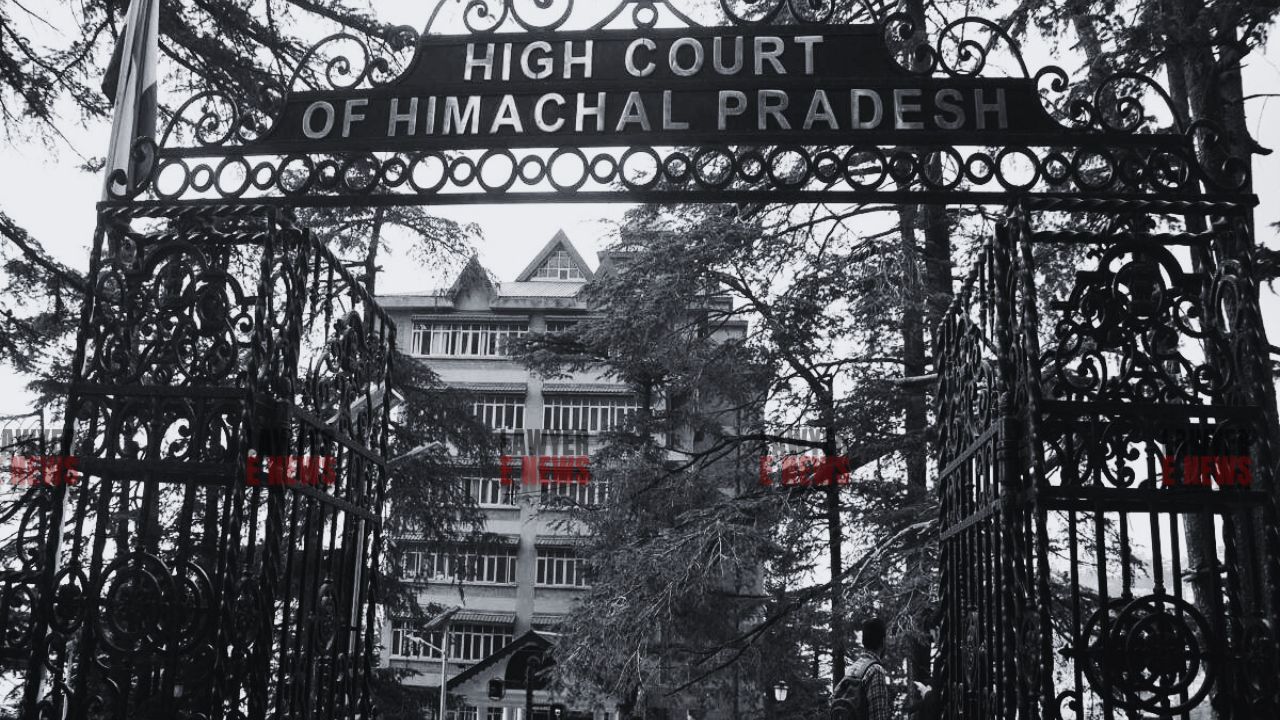-
by Admin
15 February 2026 5:35 AM



Himachal Pradesh High Court in Devi Singh v. Murat Ram (RSA No. 234 of 2022) reaffirmed the principle that co-owners who improve common property are entitled to retain the portion of land where the improvements have been made. The Court upheld the preliminary decree granting the respondent possession of the house he constructed, while the appellant retained his 4/5th share of the remaining land.
The appellant, Devi Singh, filed a suit for partition of the suit land by metes and bounds, seeking possession of both the land and a house constructed by the respondent, Murat Ram. The house, a wooden structure, had been built by Murat Ram on the disputed land in 1983, prior to Devi Singh becoming a co-owner.
Both the trial court and the first appellate court ruled in favor of Murat Ram, acknowledging his right to retain possession of the house, as he had constructed and maintained it. However, Devi Singh appealed, contesting the lower court's preliminary decree, which had awarded him a 4/5th share in the land but not possession of the house.
The key issue before the court was the ownership and possession of the house, considering that both parties were co-owners of the suit land. The appellant argued that as a co-owner with a 4/5th share, he should be entitled to possession of the house. Conversely, the respondent claimed equitable rights over the house, having constructed it before Devi Singh became a co-owner.
Order 20 Rule 18 of the Code of Civil Procedure, 1908 (CPC), which governs the partition of immovable property, was pivotal in this case. The court observed that while a preliminary decree determines the rights and shares of co-owners, it must also take into account any improvements made by one of the co-owners.
The appellant relied on the judgment in Tara Chand v. Smt. Shakuntla Devi (1981) to argue that he was entitled to possession of his share, including the house. However, the court distinguished this case, stating that the improvements made by Murat Ram warranted special consideration.
The Himachal Pradesh High Court, in a detailed judgment delivered by Justice Bipin Chander Negi, upheld the lower court's decision. The court noted that equitable partition does not only consider the co-owners' shares but also takes into account any improvements made on the property.
In Paragraph 18, the court stated:
"In addition to the moieties of the parties, other matters like the allotment of lands on which improvements have been made must be considered. Allotting the portion of land with the house to the respondent is equitable, given that he constructed and maintained it."
The court further clarified that the issue of possession of the house was premature at the preliminary decree stage. The final decree, which would include the physical division of the property, would also determine whether the appellant is entitled to any compensation or adjustments for the respondent's construction.
In Paragraph 22, the court emphasized:
"The respondent had constructed the house long before the appellant became a co-owner. It would be inequitable to deprive the respondent of the house and its corresponding land, especially when the appellant has no contribution to its construction."
The appeal was dismissed, and the preliminary decree remained unchanged. The court held that the final decree would address any further adjustments, including potential compensation for the house, during the actual partition of the property.
The judgment reaffirms the principle that in partition suits, improvements made by co-owners on common property must be considered, ensuring equitable distribution. The appellant, despite having a larger share in the land, could not claim possession of a house he did not construct.
Date of Decision: 20th September 2024
Devi Singh v. Murat Ram (RSA No. 234 of 2022)
